Good nutritional science is made available to everyone. For all ages. Every way of living. Their simple-yet-effective nutritional support helps everyone perform at their peak.
A single big idea was the foundation of Vitabiotics. No matter what challenges life brings your way, they’ve been dedicated to helping you perform at your best for almost 45 years.
Life has evolved, but they’re still there to lend a helping hand in more ways than before. First and foremost, they have never changed from their original form as an independent, family-run British firm—a trusted brand that provides safe, balanced, and effective support.
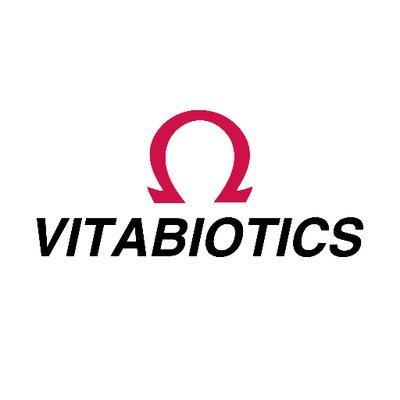
Pregnancy Vitamins & Supplements
Pregnancy challenges your body long before the happy days, restless nights, and adorable faces. Proper dietary assistance is of the utmost importance for both you and your growing child. They were the first to market a comprehensive line of prenatal and postnatal nutritional supplements called Pregnacare, which they believe to be the gold standard for pregnant women.
Vitabiotics: Best Sellers
Pregnacare Him & Her Conception
During the process of trying to have a child, a comprehensive dual pack is available for couples to help support a healthy conception. A specially made supplement that contains minerals, including zinc, which has a role in maintaining normal reproductive health in both males and females. Pregnacare is the most popular brand of pregnancy supplements in the United Kingdom.
- Use as soon as you start trying for a baby
- Includes Pregnacare Conception tablets for her – a specialist formula to support women’s fertility
- Includes Wellman Conception tablets for him – a specialist formula to support men’s fertility
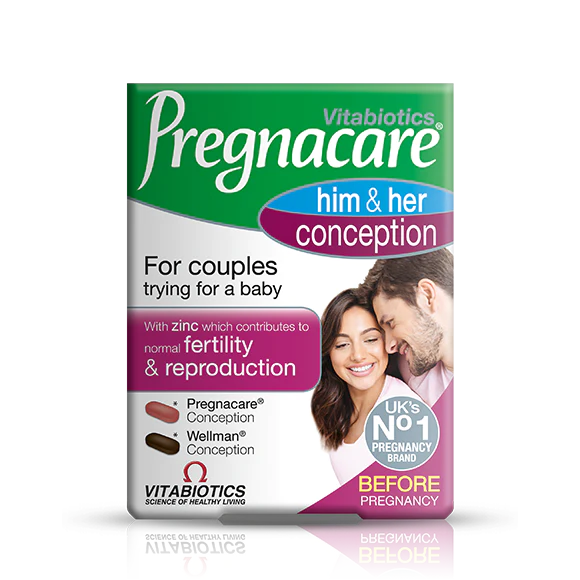
Pregnacare Original
It is an amazing method that has been tried and tested to protect a mother’s food while she is pregnant. This method was developed by professionals and has been trusted by mothers for generations. In the United Kingdom, Pregnacare is the most popular brand of pregnancy supplements.
- Contains 400µg folic acid and 10µg vitamin D, the levels advised by the UK Department of Health.
- More than just a folic acid supplement, it includes 19 important nutrients for overall support, including zinc, which contributes to normal reproductive health.
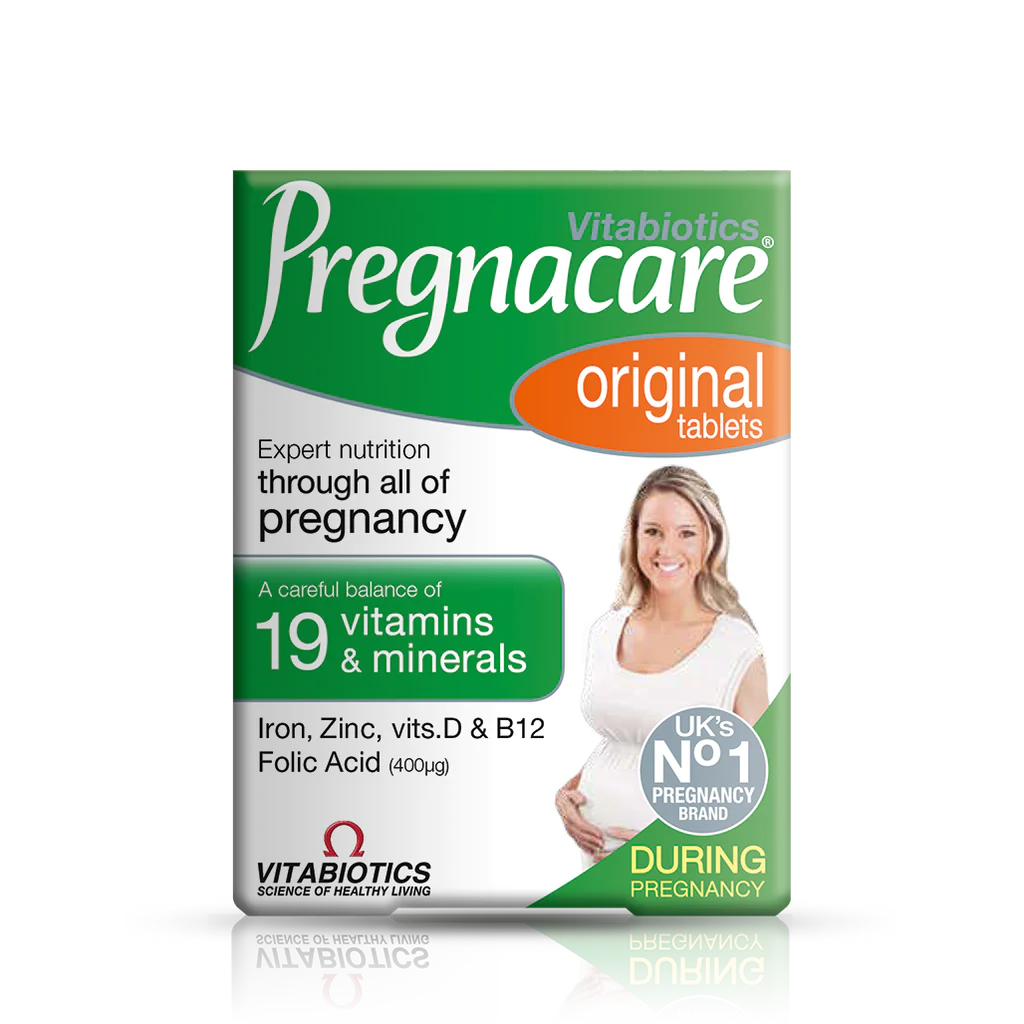
Pregnacare Max
Their team of specialists has specifically created this supplement to be their most effective and comprehensive pregnancy supplement for expectant mothers who are looking for the most thorough and ideal nutritional support during their pregnancy. In the United Kingdom, Pregnacare is the most popular brand of pregnancy supplements.
- An advanced and trusted source of important nutrients such as L-methylfolate (an advanced form of folic acid), vitamin D, omega-3 DHA and other essential vitamins and minerals.
- Provides levels of calcium to help maintain normal bones and teeth.
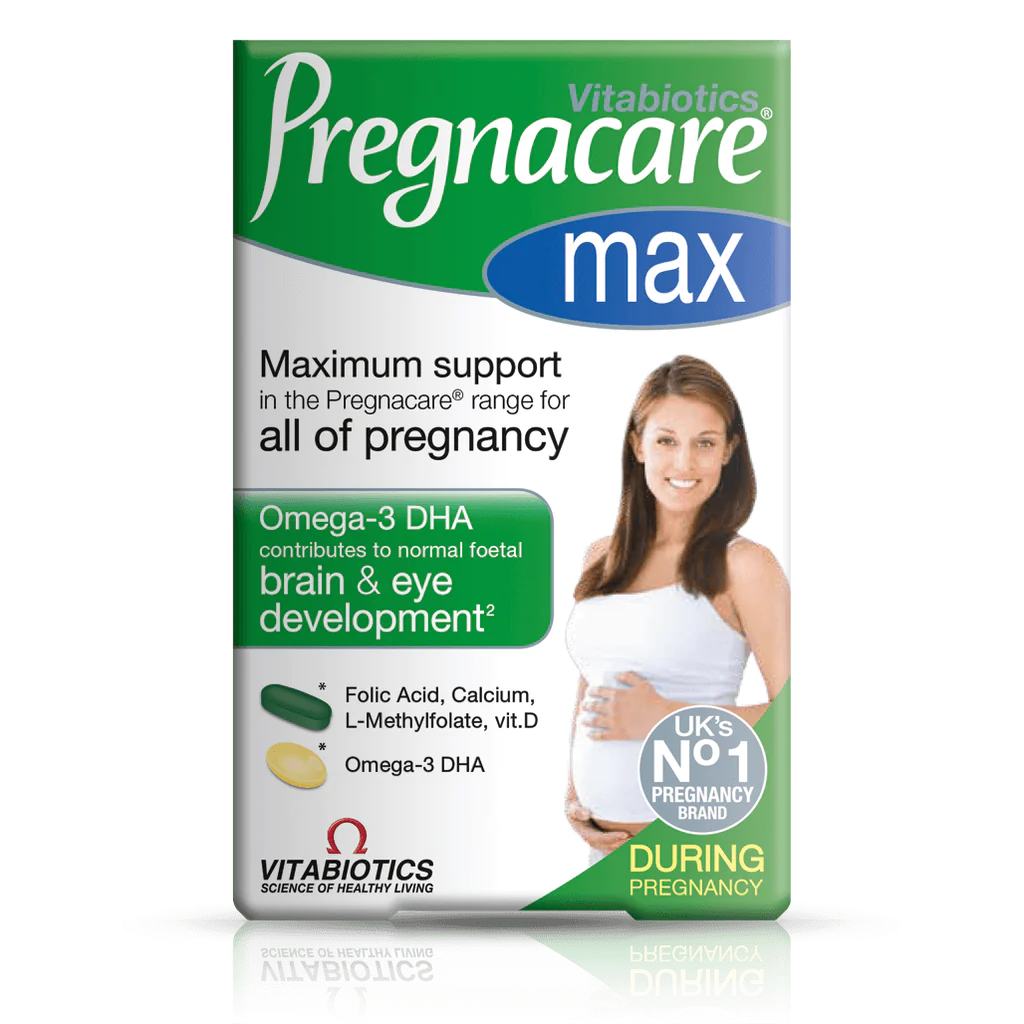
Pregnacare Breast-feeding
A formula that has been carefully balanced and formulated by experts brings together the essential nutrients that are required specifically during the breastfeeding phase, assisting in the protection of your diet at the most crucial time. Pregnacare is the most popular brand of pregnancy supplements in the United Kingdom.
- Brain & Eye Development – each capsule provides 300mg DHA. Maternal intake of DHA contributes to the normal brain and eye development of breast-fed infants
- Bones – 700mg calcium, vitamin K & D and magnesium, which contribute to the maintenance of normal bones
- Vitamin D includes 10µg vitamin D, the exact level as advised by the UK Department of Health during breast-feeding
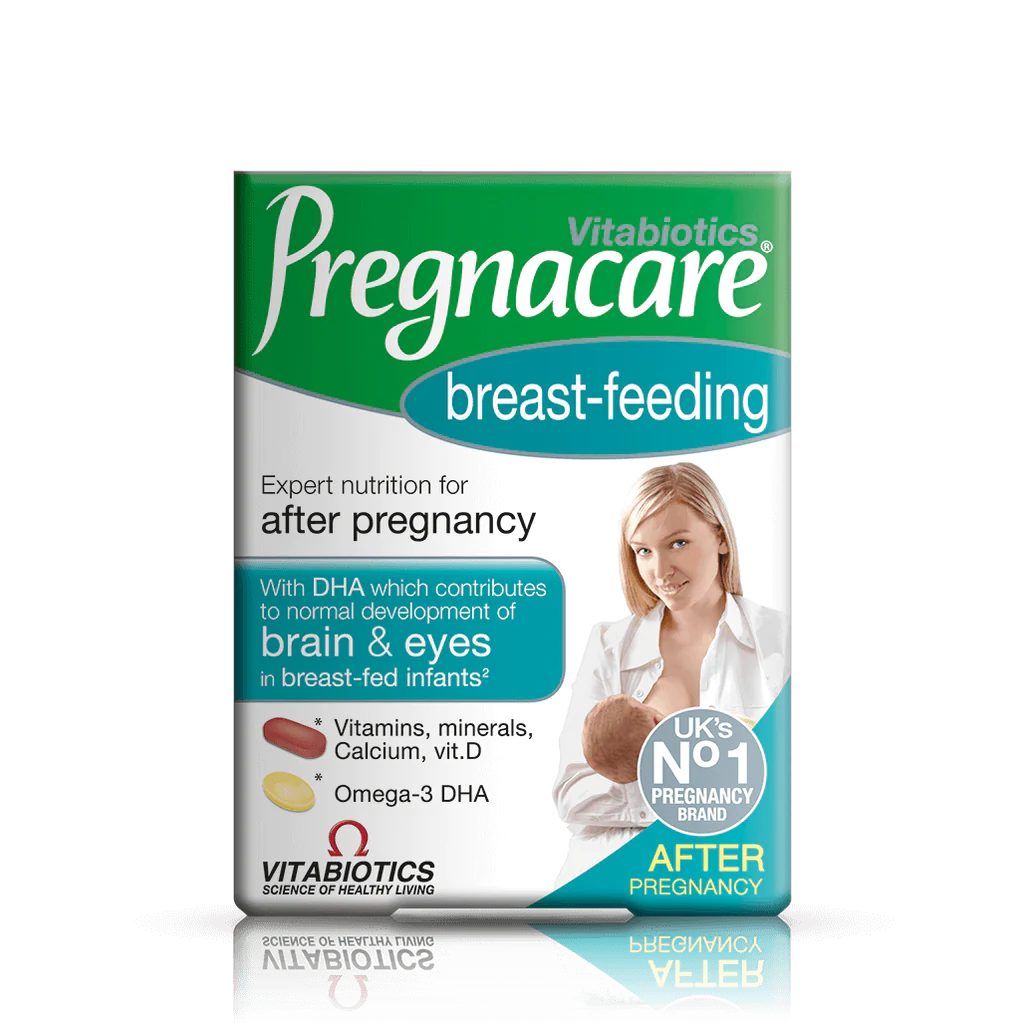
FAQS:
Should I take pregnancy vitamins?
The majority of the vitamins and minerals your body needs throughout pregnancy can be obtained by eating a balanced, diversified diet. The UK Department of Health, on the other hand, suggests taking a 400-microgram folic acid supplement daily from the time you start trying to conceive all the way up until the end of the first trimester, which is around week 12. Beyond the first twelve weeks of pregnancy, folic acid continues to be useful because it aids in the development of maternal tissues. The UK Department of Health advises everyone, including those who are expecting or nursing, to consider taking a vitamin D supplement with 10 g of vitamin D every day, particularly in the fall and winter.
How Much Vitamin D Is in Pregnancy?
The UK Department of Health advises everyone, including those who are pregnant or breastfeeding, to take a daily supplement containing 10 g of vitamin D during the fall and winter. In addition to folic acid at the necessary level of 400µg and vitamin D at 10µg, Pregnacare Original contains a variety of other nutrients that are useful, such as zinc, iron, magnesium, and vitamin B12.
Should You Take Prenatal Vitamins Throughout Your Pregnancy?
Pregnacare prenatal vitamins contain folic acid, which helps the mother’s tissues grow, and can be taken continuously during the pregnancy. However, you and your newborn will both benefit from taking Pregnacare’s postnatal vitamins following the birth. Pregnant women should begin taking folic acid at the first sign of fertility problems and continue doing so until they reach the 12th week of their pregnancy, which is at the conclusion of the first trimester. According to the UK Department of Health, folic acid should be started as soon as a woman learns she is pregnant if she did not take it before becoming pregnant.
Which Vitamins To Avoid During Pregnancy?
Too much vitamin A (retinol) in a pregnant woman’s supplement could be harmful to her unborn child’s growth; therefore, it’s best to stay away from them. Because of the high vitamin A content, you should also stay away from liver and liver products, such as fish liver oil. With a modest (non-excessive) quantity of beta carotene (given as natural mixed carotenoids) in place of vitamin A, Pregnacare Original is a multivitamin tablet that has been meticulously developed for pregnancy. Nothing in Pregnacare has ever contained vitamin A.
Are prenatal and postnatal vitamins the same?
Prenatal vitamins are meant to be used both before and during pregnancy. According to the UK Department of Health, 400µg of folic acid and 10µg of vitamin D should be taken. It is recommended to take postnatal vitamins after giving birth. Supplementing your breastfeeding diet with vitamins may help cover nutritional deficiencies. Omega-3 fatty acid (DHA) is one of the many nutrients that are essential while nursing, and Pregnacare Breast-feeding Supplements include all of them. Babies whose mothers consume 200 milligrammes of DHA per day, on top of the recommended adult dosage of omega-3 fatty acids, have a better chance of developing normally in the brain and eyes. Vitamin B12 aids energy release, and biotin keeps skin and hair healthy after giving birth; both are found in Pregnacare New Mum.






Leave a Comment